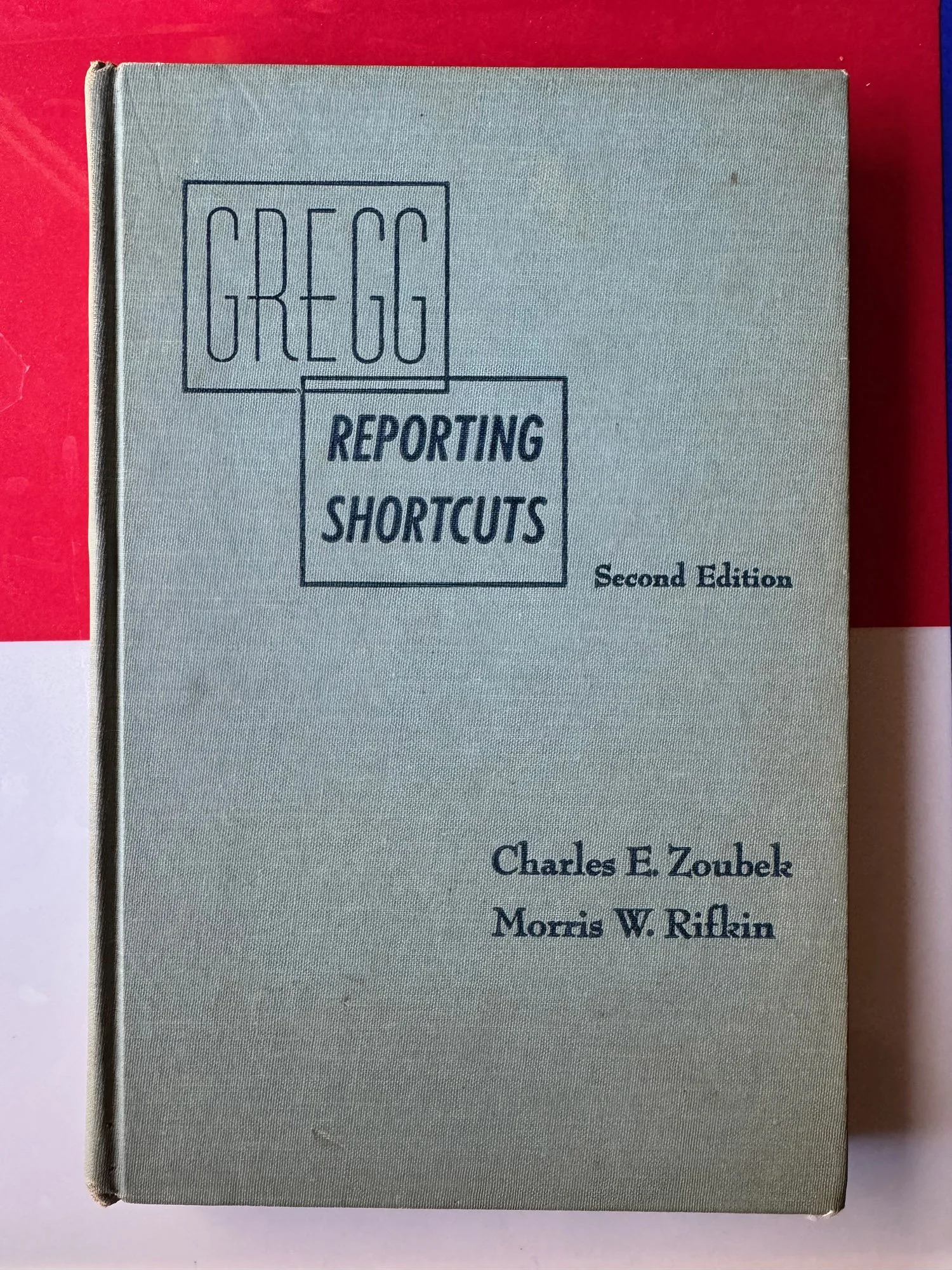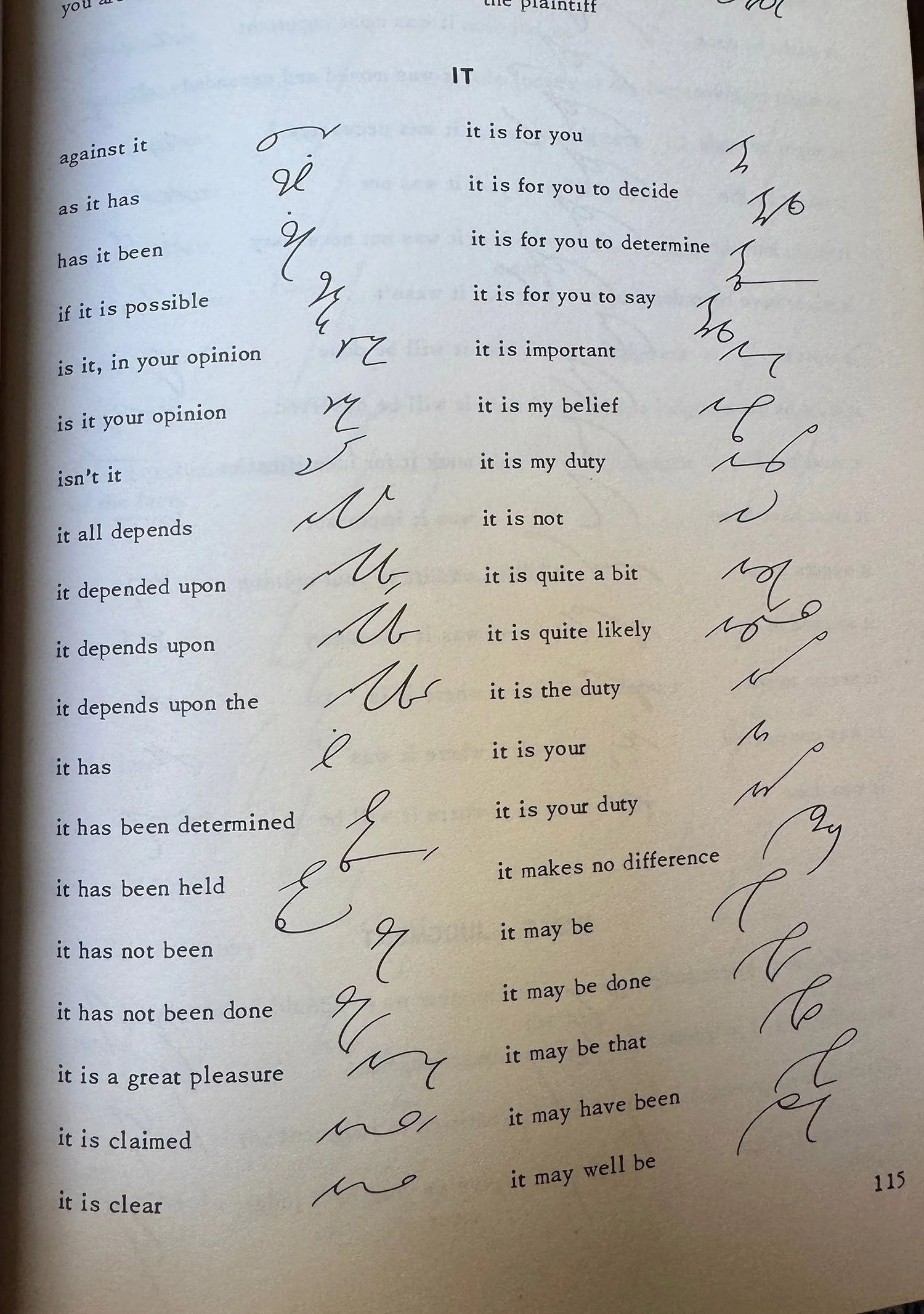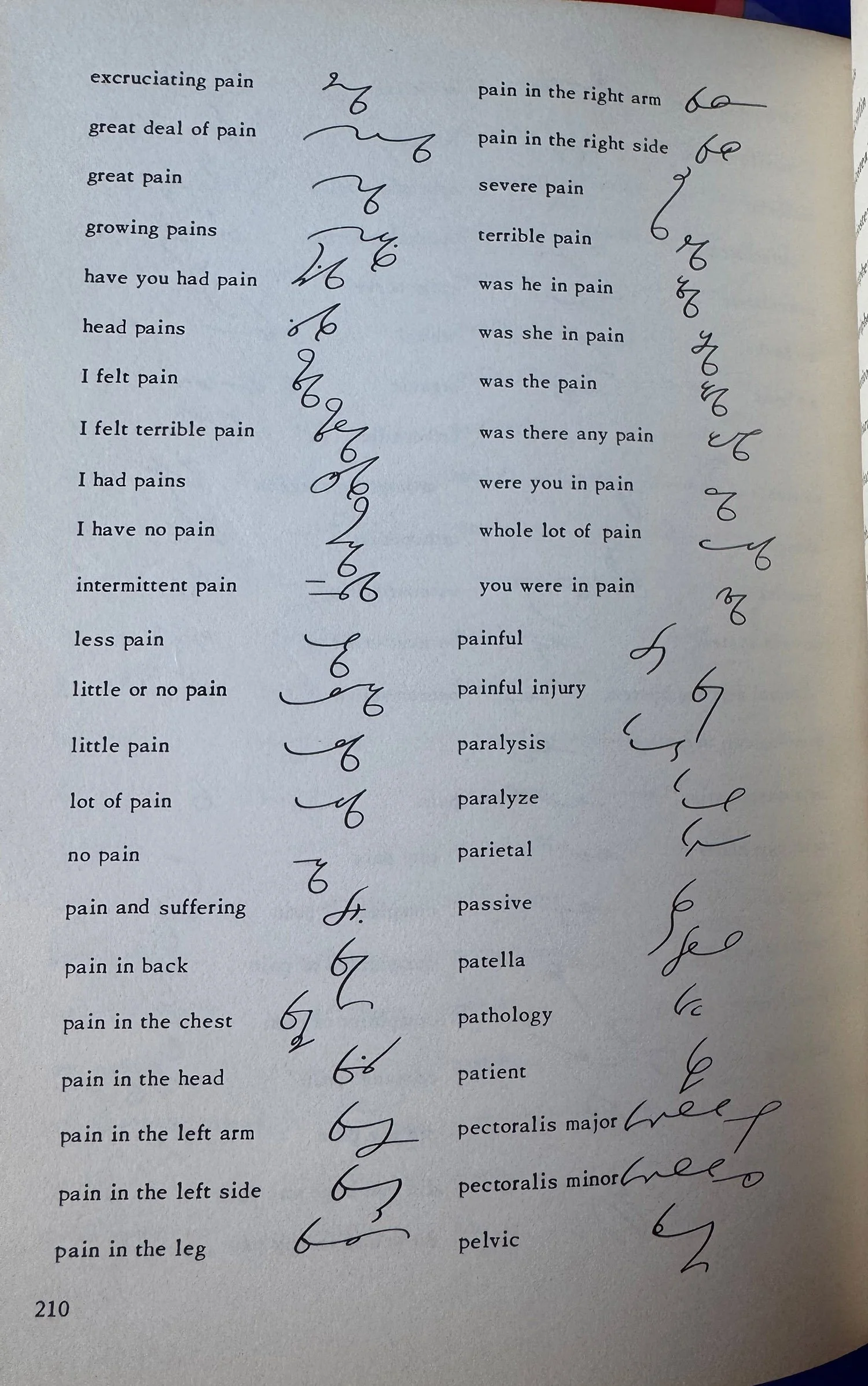Joy and Peace Amidst Pain
One of my favorite verses in the book of Romans is:
“May the God of hope fill you with all joy and peace as you trust in Him …” Romans 15:13
Is his verse a promise? a prayer? a hope? The words come at the end of Paul’s letter to the Romans, which forms the context of his meaning.
Does this or any verse stand alone, apart from its context?
Paul cites at the beginning of his letter that Tertius actually wrote down the words Paul dictated. Tertius was Paul’s secretary––his amanuensis.
Amanuensis––In Latin, the phrase servus a manu translates loosely as "slave with secretarial duties." (The noun manu, meaning "hand," gave us words such as manuscript, which originally referred to a document written or typed by hand.) In the 17th century the second part of this phrase was borrowed into English to create amanuensis, a word for a person who is employed (willingly) to do the important but sometimes menial work of transcribing the words of another. While other quaint words, such as scribe or scrivener, might have similarly described the functions of such a person in the past, these days we're likely to call him or her a secretary or an administrative assistant.
Big doors turn on small hinges
For me, the hinge word in Romans 15:13 is “as.”
“As” means “in or to the same degree in which,” in this case, you trust. Also, “as long as” you trust, or while you trust.
Leaving the safety of the boat, to walk on water when Jesus told him to come to him, Peter didn’t sink so long as he kept looking to Jesus, showing he trusted Jesus.
The fact that someone else wrote down Paul’s words made me think.
When I was growing up, my mother worked as a legal secretary to a state senator in Las Vegas, NV, and from there she moved to Beverly Hills, private secretary for a partner in the law firm, Wyman, Finnel, and Rothman.[1]
At age 17, she had won the shorthand award in high school for taking more than 120 words per minute. My mom’s typing and shorthand skills landed her better jobs, which as a single mother, kept food on our table and a roof over our head. I attended school in Beverly Hills for a year.
Different skills are required for listening and then transcribing what someone has said as opposed to interacting with what the speaker is saying and what his or her words mean.
The symbols my mom scratched on a stenographer pad, translated into words, which she then transcribed and typed. However important at the time, these words didn’t change her life.
Throughout history, however, Paul’s words have led to life changes for countless individuals.
In the book of Romans, Paul provides context for the promises God gives, presenting the need before he makes plain the provision.
© 1922, © 1959, McGraw Hill Book Company, Inc.
Shorthand: IT’s Greek to Me
What is “IT” in your life or mine that makes it hard to trust God?
Whatever it is, it will differ for each of us. And at various times, it all depends. That’s what determines IT in context.
Did I understand what had happened that led my mom to change jobs? I hated having to move again. I wanted to know why I had to start over again in a new school, almost every year. That was an IT that caused me pain.
Pain & Peace & Context
The kind of peace and joy Paul describes results from trusting God, hoping amidst whatever you or I experience, in the long run, we will benefit from the grace and faith God gives us to triumph.
God was using what caused me pain to draw me to Himself.
“God whispers to us in our pleasures, speaks in our conscience, but shouts in our pains: it is His megaphone to rouse a deaf world.”
What causes you pain, whether physically, emotionally, or spiritually differs from what causes anyone else pain. There can be similar sources of pain and its effects, but everyone experiences pain differently.
As my mother so often said to me, “I can’t feel your toothache.”
While you and I seek to avoid pain, the loss of sensitivity to pain is far worse.
The debilitating, disfiguring effects of leprosy bear witness to the damage that results from insensitivity to pain.
“Paul Brand in Vellore [was] the first to really understand that these fingers [and feet] get damaged from repeated trauma, Not from leprosy chewing them away, but because they lack pain sensation … Paul Brand saw a patient cooking over an open fires, struggling to flip a chapati with tongs. She got frustrated and just reached in with her bare hand and turned it over. You and I would scream in pain, but she felt nothing. That’s when Brand understood. ‘Without the gift of pain, we have no protection.’”
Don’t. Miss. This. “Without the gift of pain, we have no protection.”
Leprosy illustrates how when we ignore our pain, our condition worsens.
Pain can signal us to seek help.
And it’s not simply physical conditions that cause pain.
People also carry pain on the inside.
Describing a patient with leprosy who had undergone surgery, a doctor thought, “Her scars, her burns, her contractures were all on the inside, invisible . . . unless one gazed into her eyes: then it was like looking into a still pond and gradually making out the sunken car with its trapped occupants at the bottom.” [2]
When “it’ comes to pain, the apostle Paul knew what he was talking about.
Whether physical or emotional or spiritual pain, Paul shared that the God of hope is the Source of joy and peace, no matter what IT Christians may endure.
Write down what you think or what I say?
One of the best takeaways from a photography workshop I attended years ago came from the instructor who said, “Don’t write down what I say. Write down what I say makes you think.”
As a perennial notetaker, that person’s comment shifted my perspective and changed the way I listen to what people say or read what people write.
I still take notes. I reread the notes I take. And often I write down what looks like shorthand or hieroglyphics. Yet words I hear or read that make me think can have lasting effect.
God’s Word helps me deal with pain, leading me to trust Him. As I trust Him, joy and peace follow.
[1] Founded in 1952 by Eugene Wyman and Marvin Finell, the Wyman firm became a corporate- and entertainment-law powerhouse with the help of Gregson Bautzer, a Hollywood lawyer who joined the group in 1967.
[2] The Covenant of Water by Abraham Verghese is the source of the above quotes. Reference to Paul Brand is accurate, both to location in India, his work as a doctor, and his discoveries about the disease of leprosy. Phillip Yancey co-wrote with Dr. Paul Brand In His Image, a book that chronicles Dr. Brand’s pioneering work with lepers and the spiritual insights gained.






